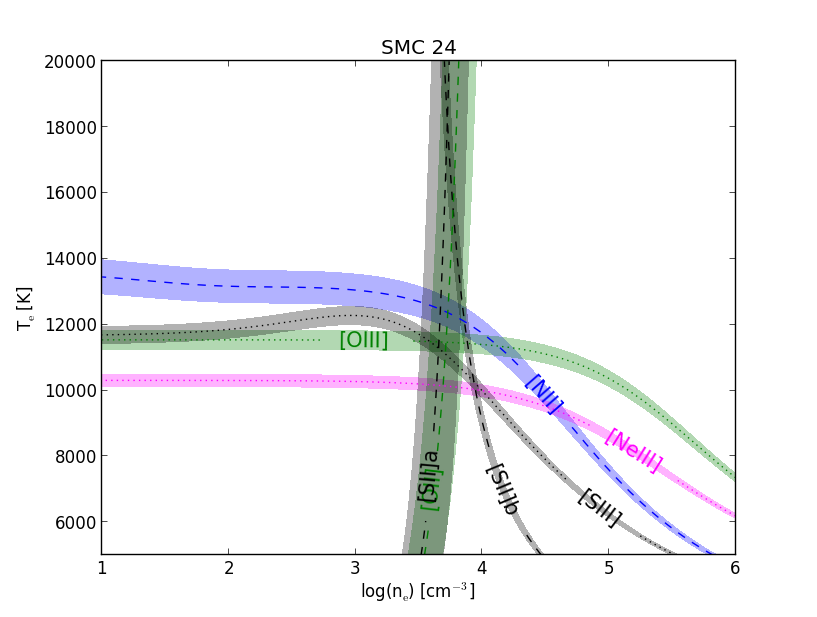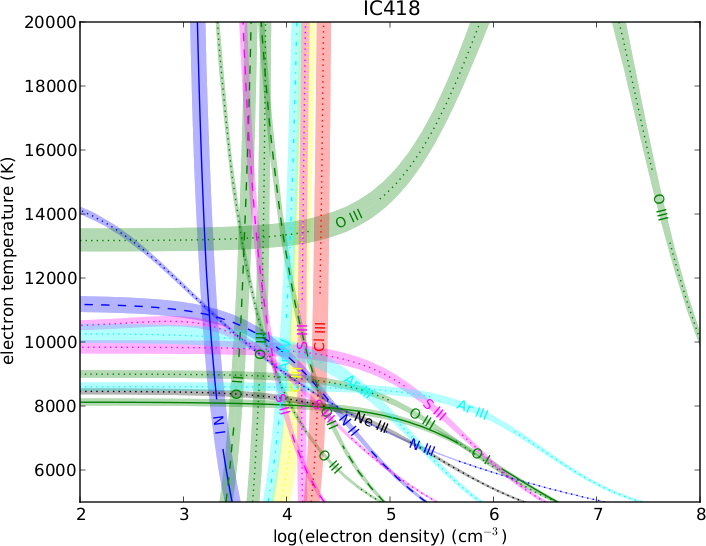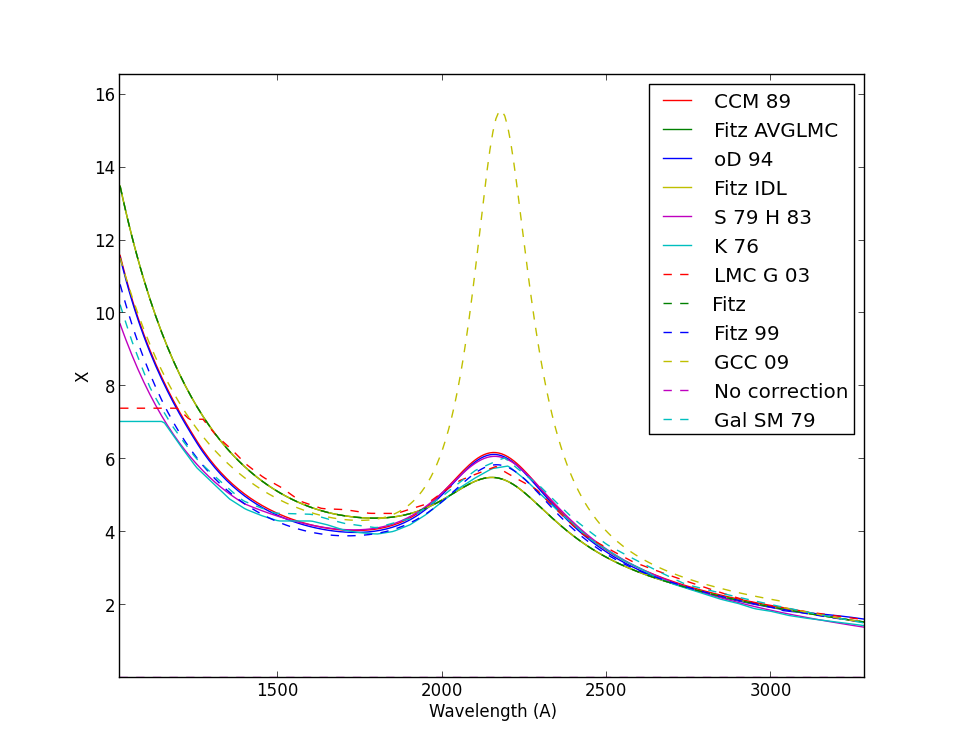PyNeb's Home Page



PyNeb's Home Page |
   |
PyNeb (by V. Luridiana, C. Morisset, and R. A. Shaw) is the last in a lineage of tools dedicated to the analysis of emission lines, which includes FIVEL and nebular (see also here). PyNeb is completely written in python and is designed to be more user-friendly and powerful than its predecessors, its functionality representing a giant leap forward with respect to them in terms of speed, easiness of use, graphic visualization, and accessible information.
In PyNeb, the atom is represented as an n-level atom. For given density and temperature, PyNeb's machinery solves the equilibrium equations and determines the level populations. These are some of the things it can do:
PyNeb also incorporates emissivity tables of recombination lines for a few atoms (currently, H and He ions and O II). The interpolated emissivities can be used by any of the modules that rely on the n-level line emissivities to carry out the actions listed above.
To install or upgrade PyNeb, you need pip. Get it here and install it using:
sudo easy_install pip
Once pip is installed, enter from the command line:
pip install --user PyNeb
to install PyNeb, and:
pip install --upgrade --user PyNeb
to upgrade previous versions of PyNeb (but omit the option --user if your python has been installed with Ureka or Canopy).
Uninstalling PyNeb is easy as well: pip uninstall PyNeb
Problems? Goto Troubleshooting
Download PyNeb's manual here.
There is a discussion group to post requests, help other users, and share your problems.
To get a quick answer to a problem, send an email to the group account.
Several useful scripts to get started with PyNeb can be found in the final section of PyNeb's manual.
Here are some graphical examples of what you can do with PyNeb. You can find the scripts producing these plots in PyNeb's manual.
| Line emissivities as a function of Te | Grotrian diagrams | Transition probabilities, relative values |
![[O III] line emissivities plot](./images/o_iii_emis.png) |
![[O III] Grotrian plot [O III] Grotrian plot](./images/o_iii_grotrian.png) |
![Available [O II] transition probabilities Available [O II] transition probabilities](./images/o_ii_relA.png) |
| Comparison of collision strengths | Diagnostic diagrams from observational data | Diagnostic diagrams from observational data |
![Available [O II] collision strengths Available [O II] collision strengths](./images/o_ii_omega.png) |
 |
 |
| Extinction laws | Contour plot of line ratio | Line emissivity map |
 |
![Intensity plot of [O III] ratio as a function of Ne, Te Intensity plot of [O III] ratio as a function of Ne, Te](./images/o_iii_ratio_contours.png) |
![[O III] 5007 emissivity map [O III] 5007 emissivity map](./images/o_iii_5007_grid.png) |
| Line ratio map | Line ratio plot as a f(Te), several Ne | Transition probabilities, absolute values |
![[O III] 4363/5007 ratio map [O III] 4363/5007 ratio map](./images/o_iii_grid.png) |
![[O III] 4363/5007 ratio [O III] 4363/5007 ratio as a f(Te, Ne)](./images/o_iii_ratio_Te_Ne.png) |
![[S III] transition probabilities [S III] As](./images/s_iii_A.png) |
Many thanks to Gloria, Jorge, Manu, Adal, Grazyna, Rubén, Enrique, César, Arturo and many other early adopters of the code.
If Cloudy has a favorite song, why shouldn't PyNeb have one too?